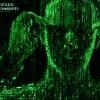1. No, I do not. it's 1 day improvement,
BTW, the 'just an artwork guy' i mentioned earlier, he kept played lumocity for few days and scored perfect score (> 0.1%) at every region.
he told me that lumocity is so much fun so he just played it over and over for few days. then boom, perfect score. WTH?
what do you mean by i'm 'closer to neurological performance maximum'? then what he will be? genius? i don't think so.
2. Nope
3. Probably
4. Maybe, I don't experiencing same thing since last post tho. BTW, I don't know what happened with piracetam episodes, BUT I am noticing some of following effects:
A. working memory definitely improved.
B. short term memory slightly impaired. I'm losing things what usually don't these days. wallet, cellphones. crap. thus I'm so shocked about demyelination you mentioned.
C. concentration improved. I usually cycling brainfog for approx. two weeks, and gone for approx. two weeks. then it starts again. I defined myself this effect as some sort of 'slump'. but since dihexa, it's all gone. just able to keep concentrating @ work.
D. things are well 'orchestrated' in mind. random input, organized output. getting good at work.
E. things are easy to remember for long time, but more forgetful for unimportant things. well, hmm.
Can you post a link to piracetam episodes? you scared hell out of me. :|
Since I don't want to go too OT here, suffice to say: (1) use the search dialog at the upper right to look for piracetam (and other racetams); (2) read the threads thoroughly, not just the first few posts; and (3) demyelination is just one possible explanation for persistent failure, which might be avoidable if this poster is correct:
http://www.longecity...-to-work-for-me
That said, I only mentioned piracetam because your reported effects sound similar, which might indicate that similar neurological phenomena are occurring.
As to Lumosity scores: I've gotten perfect scores on some games as well, but nowhere near the top difficulty level. So "perfect score" doesn't mean much of anything. Peer ranking percentile for a given age group means volumes, however. At 1570 (or even 1520) you're on the high side already, even if you're 20. (You might considering telling us your age.) What I meany by "neurological performance maximum" is that your LPI is in the 1500s, whereas mine is in the 1400s; therefore I have more room for improvement than you do. That's why, for example, everyone experiences huge increases in LPI during the first few weeks of playing.
Have a look at "How You Compare" in your brain profile, which shows your age group at the top. Take a screen shot (usually PrtSc, Ctrl+PrtSc, Fn+PrtSc, or Shift+PrtSc). Copy it to the clipboard, then paste it into a paint program (ideally) or a word processor. Save it and upload it here as an attachment to your reply. The line graph in "Detailed Training History" would also provide useful data.
I'm interested by your observation that painters seem to have excellent memory according to Lumosity. It kind of makes sense, considering how they need to visualize what they're painting, especially since most of the Lumosity memory tests are heavily visual. Ironic, isn't it, considering the amount of volatile organic compounds that even oil painters inhale?
So based on your A/B/C/D/E effects, it sounds like dihexa is causing you to do a better job of focussing on important tasks, while losing track of trivial stuff. I would not consider the loss of short term memory for where you put your phone or keys alarming, provided that it's because you're focussing internally on bigger problems. Einstein often lost his way home because he was thinking about general relativity. OTOH if you're focussing on getting ready to go out, and you end up wearing the wrong clothes or leaving your keys on the table, then we have something more akin to dementia.
Now one thing I find inexplicable is why you are seeing any effects at all. I mean, the title of this thread says it all: we're talking about synapse formation (equivalently, causing enough dendrite growth that the average axon experiences an increase in dendritic gaps close enough to communicate with it); an increase in dendritic pore coupling would also be an expected result. But can we really have that much synapse formation in a couple weeks, to produce the effects you're seeing? Yes, dramatic effects can sometimes happen in a few days with direct stem cell injection into the affected brain regions in a stroke victim, but you're taking a drug which presumably effects the entire brain. So you're growing a dendrite network as fast as I'm growing a beard? If that's really true, then we have bona fide brain regeneration here. Which is why I'm very skeptical. I suspect that if you're really being honest with us (please don't forget those screen shots), then there's a short term effect going on that has nothing to do with the rat studies (which did indeed show that dihexa was worse than saline in rats who had not been poisoned by scopolamine, as another poster pointed out). So perhaps you've stumbled upon something very valuable that has nothing to do with synapse formation. We need lots more data.
Since you're having trouble remembering trivial stuff, did I mention that you might want to include some screen shots? You might be the best-analyzed human on the planet at the moment with respect to discerning the effects of dihexa, courtesy of Lumosity. So next time you see your refrigerator, you'll remember to send some screen shots.
Edited by resveratrol_guy, 20 September 2014 - 03:56 PM.

















































